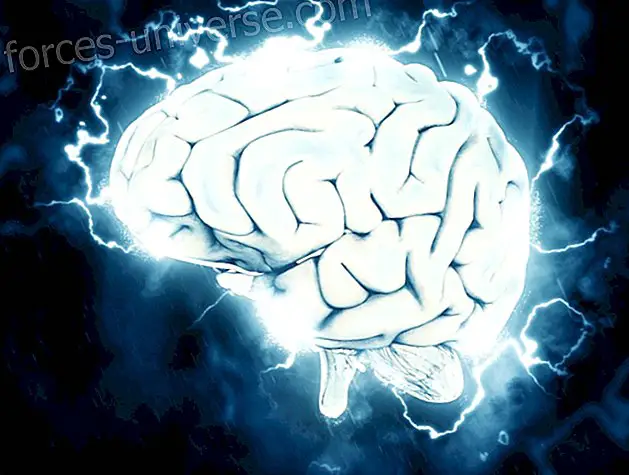
“All changes are difficult because they require an effort, a little pain. But the choice is between this little pain or the great pain of being imprisoned for our mistakes, blockages and suffering, and repeating them in perpetuity. ”
What do we talk about when we talk about the mind?
In the West we tend to identify the mind and thought, but they are not the same. Most of the time we get carried away by thinking, reflecting on things, in a reflection that generally takes us away from silence, peace, clarity, which is really the nature of the mind.
Happiness is precisely not thought. In any moment of happiness you have, you will observe that there are no thoughts. However, we are always looking for happiness through thought; looking for reasons, techniques or strategies to be happy. When, in reality, to be happy you just need to silence the thought and open yourself.
However, even if there is no thought in happiness, can thought be a way to start getting closer to happiness, to start your search? An adequate thought can help you at the beginning, even if it is to destroy with old arguments the old thoughts that prevent you from being happy. But keep thinking, add thoughts, it will not make you happier, but you can add layers that cover and hide the happiness you already have inside. You can use thought, at first, to end out of thought.
Is our mind complicated or is it our thinking habits that make it complicated?
Our mind is not complicated. What are complicated are our thoughts. The thought can be very useful, but it blinds us, we let ourselves be dragged by it. You understand things, you see them, you don't need more, but you keep thinking even if you don't need it. And you complicate everything.
What are the main enemies of the mind, to achieve happiness?
Basically, ignorance. Especially, that ignorance of not knowing that you don't know. Believing that you know everything there is to know, makes you stay in your posture and repeat mistakes. Repeat situations that lead to unhappiness. Attitudes directed by fear, anger, attachment, confusion ...
How to face ignorance?
The first step is to recognize it. Say: I don't know anything. That keeps you open to learn. What happens is that many people cannot accept that uncertainty, they need quick answers, already, and if not, they are filled with anxiety, and to avoid it, the answers are invented. Any answer that works for a while. But that keeps them in ignorance and in the repetition of mistakes and, therefore, in suffering. The best thing you can do is accept that you don't know and that you don't need to know everything to be happy.
How to face fear?
Fear appears precisely because of ignorance and because we do not accept it. We are terrified of what we do not know. Therefore, the best fear antidote is acceptance. Fear is resistance to the unknown and sometimes, resistance to the known as well. The best way to deal with it is acceptance.
How to deal with anger?
The best medicine against anger is love. When a person is angry with someone, everything in that person sees him badly, ugly, criticizable. And by extension, he gets angry at the world, which is ugly and criticizable too. Then you have to practice love; Meditate on love and practice it.
But loving is difficult when you are angry.
It's true, you don't come to love suddenly when you're angry, because you're blocked. You want to love and you find yourself like a tap that you open and there is no water. When you fall prey to anger, love does not come suddenly, but you have to keep trying, keep practicing. Only you can feel it, nobody is going to make you feel it. It's your choice.
How to deal with attachment?
In the same way as anger. With the love. In Spanish we say "I love you", and in that concept the attachment, the property, is intrinsic. Replace the word "love" with "give." When you say "I love you" think of "I give you." Practice giving, rather than controlling, in love. Leave expectations and demands aside. Love with freedom. People, things, the situations that you like most in life. Surrender to the experience, enjoy it, but do not want to retain it.
The best antidote of attachment is love; and yet, too often we make the mistake of identifying them and convince ourselves that the more attachment there is (jealousy, possession, exclusivity, control, etc.), the greater the love. One of the biggest mistakes.
What is the difference between meditating and practicing?
Meditation means to silence the mind, observe the thoughts that appear, let them pass, confront without fear the feelings that appear, regain calm, settle into clarity. You can meditate in stillness or in movement. On the other hand, the practice consists in taking action: practicing love, patience, unlocking, whatever. Through exercises and, finally, in everyday life. Meditation is a good preparation for practice.
How to organize when we have the feeling that "we don't have time"?
Of course you have time. From the time you get up until you go to bed you have time; Another thing is how you use it. The reality is that we believe we have too much time and that is why we waste it or fill it with things that complicate our lives. An effort must be made to change habits. For example: we talk a lot, without stopping, all day. We'll talk as soon as we find a person. But we talk nonsense. You can be talking for 6 hours a day without saying almost anything useful, talk by talking. And with an hour of talking conscientiously it could be enough, and devote the rest to something else. And it is clear that we spend a lot of time of the day doing things that are not essential and we don't even like them very much, and we use them as distractions or as ways of filling time, matar time . But, think about it, killing time is killing your own life. Of course you have time, but maybe you have to change the way you use time.
How to deal with confusion and ignorance?
When you feel too confused, stop thinking, because thinking too much brings you more confusion. Stop for a while, leave the subject and dedicate yourself to something else that does not require more thought. Just like when your body is tired you allow it to rest, let your mind rest. How? Move, do physical exercises, stretch your body, jump, go for a run, and then go back to the subject again. The hardest thing is to stop thinking when you feel dragged by an obsession. But you have to stop, and start again later, cooler.
They say that the human being is the only animal that stumbles twice with the same stone. Why do we face the same problem so many times (jealousy, demands, perfectionism, etc.) even when we see it coming? Is it part of human nature or do we not learn? And if so, why don't we learn?
All changes are difficult, require an effort, a little pain. But the choice is between a small pain (change) or a great pain (to remain prisoners of our mistakes, blockages, suffering, and repeat them in perpetuity). Whenever you have a problem, when you see it coming, look at it and ask yourself: Can I control it or not? If it is in your hands, you solve it, and if not, you accept it. Once you accept the situation, you will no longer repeat the problem mentally; that is to say: I will no longer live it with anxiety, fear, rejection, anger, etc.
On the one hand, we want to simplify our life and achieve a state of calm harmony. On the other hand, socially and culturally (in cinema, in literature, in social myths) we are presented as much more interesting characters more complicated, with emotional storms. This is a great contradiction when it comes to educating our youth, or to educate ourselves.
How do you convey the importance of being good people, simple and kind when the media message is that the bad boys will inherit the earth?
With the example. If you are a happy person, they will probably try to repeat your life patterns, sooner or later. Perhaps not during adolescence, because they will be lost and they will meet a thousand times in their own search, but later.
But, finally, everyone takes their own options and that does not depend on you: they can choose the path of love and happiness or that of emotional whirlpools and continue to suffer. Leave them. In that case, perhaps what they need is to suffer much more, to the limit, until they can't stand it anymore. There are people who only then react and learn to love others: for the need of survival. Other people choose the path of love out of pure tiredness of suffering, out of pure boredom. Then they discover that love makes life more intense, joyful and rewarding.
Interview conducted by: Marié Morales.






